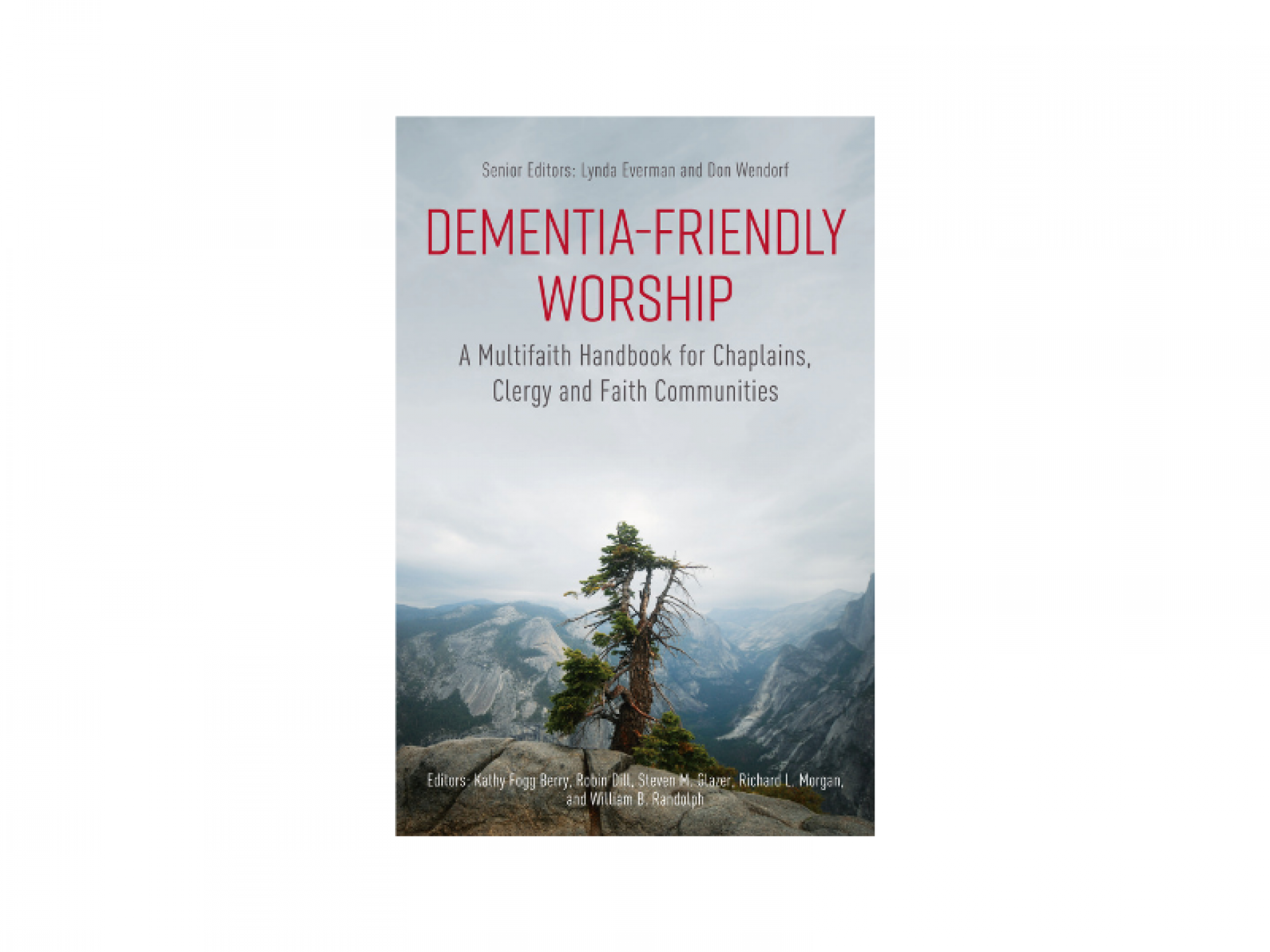Dementia Friendly Worship: A Multifaith Handbook for Chaplains, Clergy and Faith Communities

Sign up and receive information on the latest news and updates.
Every person deserves the basic human right to live with value and purpose.
This is, perhaps, one of our most strongly held beliefs, and the reason why we decided to write Dementia Friendly Worship: A Multifaith Handbook for Chaplains, Clergy and Faith Communities. The book is first-of-its-kind, and will hopefully enable every congregation and faith community in the country to welcome and serve those living with dementia, together with their caregivers and families.
It is too often the case that dementia and Alzheimer’s rob people of their individuality, their personhood, and their dignity. It’s easy to think of those living with dementia and Alzheimer’s as rapidly emptying “shells,” rather than fully dignified human beings, regardless of their state of cognitive decline. This is unacceptable, and we are here to change that mindset.
But why is it important to change this mindset in the context of faith? Well, we’re glad you asked. Faith communities in particular have a unique opportunity to lead by example through good works that ensure every person living with Alzheimer’s, another dementia or cognitive impairment is treated with dignity and cared for compassionately.
An excerpt from the cover of our book reads: “Just as the sun’s rays beam through the clouds and illuminate an old but still living tree, Souls Shine Forth.” This theme is echoed throughout the book. Despite the cognitive and other limitations imposed by dementias, the essence of the person, their core, their soul, is there, still alive inside of them, and able to be ministered to and meaningfully connected with. “Souls shine forth” is both a declarative sentence about those with dementia as well as an imperative to the rest of us to get our souls into the action of dementia-friendly service. That’s what we want this book to address. And our outstanding contributors have shared their expertise and caring to make this happen.
Pioneers like Rev. Dr. Richard Morgan, Rev. Dr. Jim Ellor, and Bishop Ken Carder explored and developed the new fields of the spirituality of aging, dementia, and caregiving. Their work is now changing the way faith communities think and approach dementia and faith. Others have broken new ground in understanding and relating to the very soul still alive inside every person living with dementia, and still needing relationship, validation, socialization, kindness, purpose, and meaning.
Many of our esteemed contributors are living with or are at risk for dementia, and relate how this disease affects their everyday lives, their ability to participate in worship, and how they would like clergy to understand and serve them while allowing them to continue serving others. One contributor, Rev. Dr. Cynthia Huling Hummel, still works part-time as a pastor. UsAgainstAlzheimer’s Board member Greg O’Brien continues his distinguished career as a journalist and author. Daisy Duarte cares for her mother, who has Alzheimer’s, and is participating in a clinical trial, in hopes of contributing to research that will lead us to a cure. Each example reminds us that it is inspirational and redemptive to recognize the power people hold and the contributions they continue giving to the world while living with dementia.
We both received lifesaving, compassionate, and practical help from churches during our caregiving days with respective spouses, motivating us to “pay it forward” in our own advocacy. We know this is the case for so many facing dementia, both as caregivers and as patients. For example, in a recent UsAgainstAlzheimer’s A-LIST survey, 70% of respondents said faith is part of their Alzheimer’s journey, and 72% say they want more support from their faith communities – but the resources are often not available. Dementia-Friendly Worship was written to help create this change so many are hoping for today.
It was important for us that Dementia-Friendly Worship be a multifaith handbook, created to reach every denomination and faith community touched by this disease. Dementia does not live within or without doctrinal boundaries, and therefore neither should our good works, care, and compassion. Presenting diverse voices of people living with dementia was paramount to us, in the effort to learn what different groups experience, need, and want from their faith communities. And, we included a wide range of possible faith community responses, from education and prayers, informal memory care visits and services, as well as modified congregational services and respite or day care programs.
Living with value, purpose, and dignity is essential to what it means to be human. This notion touches us deeply. And as we edited this book, a complementary theme emerged: not only can we discover ways to provide ministry for those with dementia, we can minister with them, as spiritual partners in connecting with each other, our faith communities, and God. We can find ways these souls can still contribute to and be a part of a worship community. In the process, they can provide us with spiritual connection, enrichment, nourishment, and growth.
And souls will shine forth.
Lynda Everman and Don Wendorf, Psy.D., are senior editors of Dementia-Friendly Worship. Get your copy here.